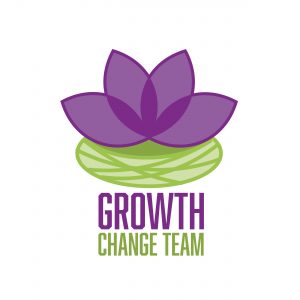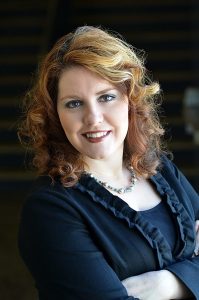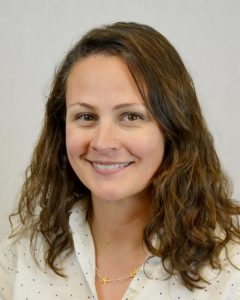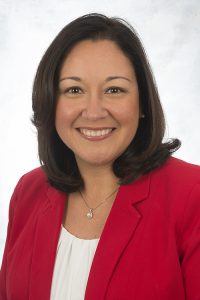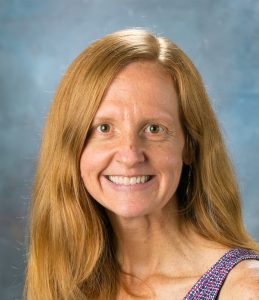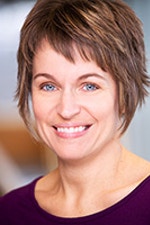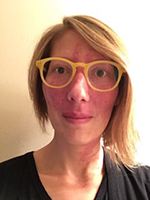A webinar on facilitating dialogue on race. A workshop on healing-centered teaching practices. A brown-bag lunch on student engagement through service learning and research. Colleges across Illinois State University are creating professional development opportunities for faculty and staff with a lens toward diversity, equity, and inclusion.
The College of Applied Science and Technology (CAST) will kick off the fall semester with a series of sessions on “The Power of Empathy and its Impact on Diversity, Equity, and Inclusion,” led by Angell Howard of the Office of Vice President of Student Affairs. “In these interactive sessions, participants will be challenged to apply core empathy skills into their professional and personal lives,” said CAST Associate Dean Cara Rabe-Hemp.
While college professional development plans that include work on equity are not new, this year administrators had mentors and a new set of guidelines to help them on the journey. “We had great partners,” said Rabe-Hemp, who worked with members of the GROWTH Change Team to evolve offerings. “Together we explored student and faculty feedback on professional development, brainstormed ideas for new opportunities, and created plans that provide faculty and staff the tools they are seeking.”
GROWTH Change Team members, appointed by the Office of the Provost, collaborated with administrators from colleges to develop college-specific professional development programming. “PD [professional development] gets a bad rap for being ‘just another meeting,’” said Bekky Darner, director of the Center for Mathematics, Science, and Technology (CeMaST) and also a GROWTH Change Team mentor for CAST. “That is why we developed FITE.”
 FITE, or the Framework for Inclusive Teaching Excellence, are guidelines based on culturally responsive practices. The six-dimensions of FITE are the result of a year-long, campus-wide effort to create evidence-based professional development specifically tailored to Illinois State faculty. “FITE lets colleges, schools, departments, and individuals identify the dimensions that work for them and incorporate them into their professional development plans,” said Darner.
FITE, or the Framework for Inclusive Teaching Excellence, are guidelines based on culturally responsive practices. The six-dimensions of FITE are the result of a year-long, campus-wide effort to create evidence-based professional development specifically tailored to Illinois State faculty. “FITE lets colleges, schools, departments, and individuals identify the dimensions that work for them and incorporate them into their professional development plans,” said Darner.
“Each college is different, so they have different professional development needs, but we wanted an organized, cohesive way to build opportunities,” said Assistant Vice President for Academic Administration Yojanna Cuenca-Carlino. As chair of the Professional Development Task Force, she also oversees the campus-wide GROWTH Change Team. “FITE allows all to be on the same page.”
Leaders of areas such as CeMaST, the Office of Student Research, and the Center for Community Engagement and Service Learning (CESL) are active on the GROWTH Change Team to help infuse practices that have been shown to help students. “Undergraduate and graduate research, civic engagement—research shows these are proven methods to engage and retain all students, but research has shown that the beneficial effects of these practices are especially strong for first-generation and underrepresented students,” said Cuenca-Carlino.
Director of CESL Katy Strzepek serves on the GROWTH Change Team, working with the Wonsook Kim College of Fine Arts (WKCFA). She noted the FITE guidelines help integrate a common language for civic engagement for college planners. “FITE also provides examples of best practices in civically–minded research, teaching, and service,” said Strzepek, adding the framework develops “common institutional strategies that enhance equity in the classroom and beyond. The goal of equity and anti-racist practices should be at the center of all our strategies.”
In the past, while CAST–sponsored events aimed to confront racism and bias, other colleges looked outward for training opportunities. Faculty in WKCFA took advantage of the dean’s faculty professional development fund to travel to opportunities that promoted research, scholarship, and creative activity. “That is one of the wonderful things about plans moving forward,” said Associate Dean for Research and Planning Sara Semonis of crafting WKCFA plans using FITE. “We are working to establish a common foundation college–wide by providing experiences ‘in-house.’”
Work over the summer by the GROWTH Change Team allowed for an exchange of ideas. “It’s been useful to see how other colleges implement their plans in ways that meet their faculty where they are,” said Dr. Kristin Carlson of WKCFA, who is working with Semonis. “It is fascinating to delve into the data of our specific college, do some education ourselves, and then work with Team members to build a program.”
WKCFA is planning events such as the “Healing-Centered/Trauma-Informed Pedagogical Practices” workshop, and encouraging all faculty members to attend the Culturally Responsive Campus Community (CRCC) Conference.
Colleges will look beyond events to meet FITE guidelines, which calls for concrete outcomes. “Team members will also review plans on measurable results such as how they will help revise pedagogy, syllabi, or artifacts used in the classroom,” said Cuenca-Carlino. After a webinar titled “The Equity Toolkit (Creating and Maintaining a Culturally Relevant Classroom Community),” units across WKCFA will discuss and create benchmarks for incorporating the work into practice.
Those working toward change see FITE as a blueprint for the future. “I am excited about institutional culture change,” said Darner. “I feel a genuine evolution is beginning within our institution.”

